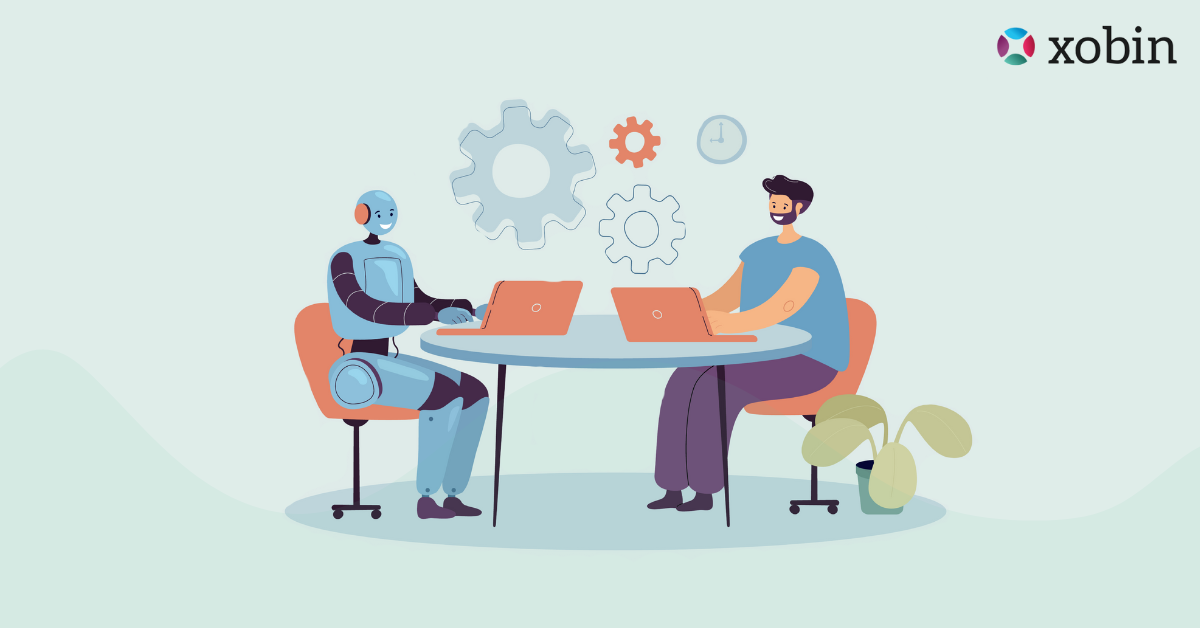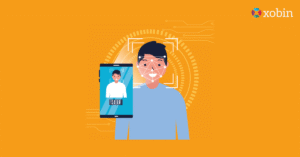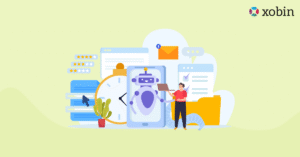Artificial Intelligence (AI) is reshaping the recruitment landscape at an unprecedented pace. According to research, 70% of HR leaders believe that AI disruption in recruitment will significantly impact talent acquisition strategies within the next five years. Moreover, LinkedIn’s Global Talent Trends report highlights that 67% of recruiting professionals are already using AI recruitment software to enhance candidate sourcing and screening.
Table of Contents
This rapid shift from traditional recruitment to AI-driven processes reflects the broader trend of AI disrupting HR functions worldwide. Whether it’s AI hiring automation or talent acquisition transformation, these technologies are transforming how companies attract, evaluate, interview and hire talent. For HR teams, the pressing question is: Is your recruitment team truly AI ready?
In this comprehensive guide, we will explore what AI disruption in hiring means, how it is changing the hiring landscape, and practical ways to prepare your team for this transformative era.
TL;DR – Key Takeaway!
- AI disruption in recruitment is transforming talent sourcing, assessment, and hiring.
- It improves efficiency, scalability, and candidate experience.
- Many HR teams still rely on outdated methods and aren’t AI-ready.
- Companies like Unilever and IBM have seen measurable gains using AI recruitment tools.
- Five steps to be AI-ready: upskill, hybrid hiring, adopt ethical tools, pilot testing, and continuous evaluation.
- Benefits include better quality hires, cut down bias, speed up hiring, and enhance the candidate experience.
- Smart AI usage improves hire quality, boosts retention, and strengthens employer branding.
What Does AI Disruption Mean for Recruitment?
The term AI disruption in recruitment refers to the profound changes AI technologies are bringing to traditional hiring methods. It’s more than just automation; AI introduces smarter, data-driven, and predictive capabilities that enhance decision-making and candidate experience.
Why Is AI Disruption Crucial in Recruitment?
- Scalability: AI manages high-volume hiring needs efficiently while maintaining quality.
- Speed: Automates repetitive tasks, speeding up hiring cycles.
- Accuracy: Reduces human bias through data-driven candidate assessments.
- Candidate Experience: Enables personalized communication and timely feedback.
AI now handles repetitive tasks, so recruiters focus more on strategic hiring, building candidate relationships, and improving diversity efforts.
Examples of AI Disruption
- Generative AI for HR creates job descriptions, interview questions, and even offer letters.
- Automated resume screening rapidly filters qualified candidates.
- AI scheduling bots automate interview bookings.
- Bias detection tools identify and address discrimination in the hiring funnel.
But disruption also brings new complexities: ethical oversight, algorithm bias mitigation, compliance with data regulations, and transparency in candidate decisions.
How AI is Disrupting Traditional Recruitment Processes?
Resume screening
Instead of manually reviewing hundreds of CVs, AI resume screening tools use NLP and machine learning to highlight top matches in seconds, boosting accuracy and fairness.
Did You Know?
Many organizations see a 30% increase in diversity hiring when they use blind-screening models.
Job description generation and optimization
Generative AI for HR can craft inclusive, engaging job ads in seconds, right‑sized for platforms and with tested wording for applicant response.
High‑volume hiring automation
Companies recruiting at scale leverage AI for high‑volume recruitment to handle screening thousands of applicants, automatically scheduling interviews, and gathering candidate feedback.
Candidate engagement
Chatbots and automated follow‑ups powered by AI tools for recruitment keep applicants informed and reduce drop-off, even outside office hours.
Bias detection and analytics
AI models now flag potential bias, analyze source effectiveness, and track diversity metrics, driving more data‑driven decisions.
Did You Know?
Over 80% of hiring managers say disruptive hiring technology has led to improved candidate experience and brand perception.
How is AI Transforming Traditional Recruitment?
| Problem in Traditional Recruitment | AI-Driven Solution |
| Manual resume screening causes delays and errors | AI resume screening quickly filters qualified candidates using NLP and machine learning |
| Subjectivity and unconscious bias in hiring | Responsible AI HR applies unbiased algorithms to promote diversity and fairness |
| Limited candidate engagement | AI-powered chatbots provide 24/7 candidate interaction and status updates |
| Time-consuming interview scheduling | AI scheduling tools automate interview logistics |
| High volume of unfiltered resumes | AI candidate screening rapidly filters and ranks applicants |
| Slow job‑description writing | Generative AI for HR auto‑generates optimized job ads |
| Scheduling delays and candidate drop‑off | AI hiring automation with chatbots and automatic invites |
| Implicit bias in CV review | Responsible AI HR tools ensure fairness and transparency |
| Lack of sourcing analytics | AI tools provide real‑time insights into talent pipelines |
Key AI Applications Disrupting Recruitment
- AI candidate screening: Assesses resumes, social profiles, and test scores.
- AI hiring automation: Automates scheduling, feedback, and candidate tracking.
- Generative AI for HR: Creates job ads, emails, and assessment content.
- AI recruitment platforms: Software like Xobin, HireVue, and Pymetrics streamline hiring.
Case Study: Unilever’s AI Journey
Unilever transitioned from traditional recruitment to an AI-powered process using AI recruitment platforms to automate early-stage screening. The result was a 75% reduction in time-to-hire and a 16% increase in employee retention. By combining AI assessments with human judgment, Unilever enhanced fairness and candidate engagement.
5 Ways to Make Your Recruitment Team AI-Ready
Embracing AI disruption in recruitment isn’t about removing human roles, it’s about strengthening them. To use AI tools effectively and stay ahead in today’s changing talent market, your recruitment team needs both technical skills and strategic planning. Below are five powerful ways to build AI HR readiness and keep your team future-proof.
1. Upskill Your Team on AI Basics
Before implementing advanced tools, your team must understand how AI in recruitment actually works. Train recruiters on key AI concepts such as machine learning, natural language processing, and data ethics. This foundation enables them to use AI tools effectively and interpret outcomes with confidence.
You can start by offering access to microlearning platforms or hosting in-house workshops. Recruiters should be able to distinguish between AI-powered recruitment and traditional workflow automation, knowing when and how to apply each.

2. Combine AI With Human Judgment
AI is powerful, but it cannot assess soft skills, emotional intelligence, or cultural fit with full accuracy. To overcome this limitation, implement a hybrid recruitment model where AI handles tasks like resume screening or job matching, while human recruiters evaluate nuanced candidate traits.
This approach ensures that AI candidate screening enhances, rather than replaces, human insight, leading to better quality hires and a more personalized candidate experience.
3. Choose Responsible and Transparent AI Tools
AI is rapidly disrupting HR functions, and this has raised serious ethical concerns. So, it’s important to use tools that support responsible AI HR practices. Always pick vendors who ensure algorithm transparency, follow privacy laws, and use clear strategies to reduce bias.
Ensure your team is trained to audit AI decisions periodically. If your tool disproportionately screens out candidates from specific backgrounds, it’s time to reassess your system.
Did You Know?
Over 60% of HR leaders express concern about algorithmic bias, but only 30% have a monitoring mechanism in place.
4. Pilot AI Tools in Low-Risk Hiring Scenarios
Before rolling out AI solutions across all hiring functions, test them in controlled, low-risk scenarios. For example, use AI for bulk hiring during seasonal or entry-level roles. This allows your team to measure effectiveness, troubleshoot challenges, and adjust workflows without affecting core hiring pipelines.
Once confident, scale usage to include AI resume screening or automated interview scheduling in strategic roles.

5. Monitor, Evaluate, and Improve Continuously
Becoming AI-ready is an ongoing process. Implement clear performance indicators like time-to-hire, quality-of-hire, and candidate satisfaction to assess AI’s contribution. If your AI recruitment tools are underperforming or generating biased outcomes, adjust accordingly.
Promote a culture where your HR team experiments and adapts quickly. As generative AI for HR continues to grow, your team must stay prepared to adjust and enhance processes.

Get Started With the Best AI Recruitment Software – Xobin!
AI disruption in recruitment has already begun. Today, AI-powered hiring tools handle everything from candidate screening to hiring automation. This shift is transforming how companies hire talent. However, if your team still relies on manual processes, you may face slower hiring, biased evaluations, poor candidate experience, and increased recruitment costs.
But by conducting an AI readiness audit, piloting smart projects, training your team, embedding responsible AI HR practices, and integrating tools across workflows, you can accelerate forward and ensure your recruitment team is truly AI HR ready.
Is your recruitment function ready to embrace AI in recruitment and reshape the future of talent acquisition? Book a personalized demo and don’t let your recruitment team fall behind in the wave of AI disrupting HR. Embrace AI to transform your hiring process, reduce bias, and improve candidate experience.
FAQs
1. What is AI disruption in recruitment?
AI disruption in hiring refers to the use of artificial intelligence tools to automate and enhance hiring processes. It improves speed, accuracy, candidate engagement, and diversity by replacing manual tasks with data-driven systems.
2. How does AI improve candidate screening?
AI screening tools use natural language processing and machine learning to analyze resumes, assessments, and social profiles, identifying the best-fit candidates faster and more fairly than manual review.
3. What are the benefits of using AI in hiring?
Key benefits include faster time-to-hire, reduced bias, improved candidate experience, better analytics, and scalable recruitment workflows for high-volume hiring needs.
4. How can HR teams prepare for AI disruption?
HR teams can prepare by upskilling in AI basics, implementing ethical AI tools, combining AI with human judgment, and piloting AI in low-risk scenarios before scaling.
5. Is AI recruitment suitable for all hiring levels?
AI tools are especially useful in high-volume or early-stage hiring. For senior or executive roles, a hybrid approach combining AI efficiency and human insight works best.





